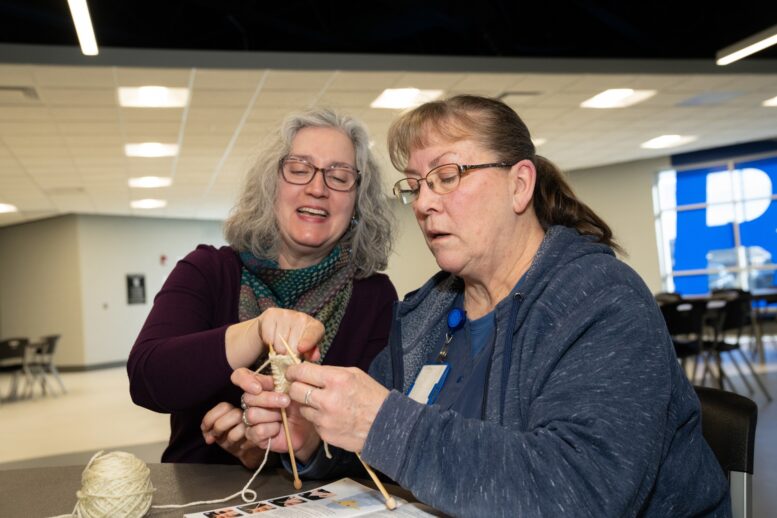From BGSU OFFICE OF MARKETING & BRAND STRATEGY
Bowling Green State University is providing school districts, caregivers and school-age children in northwest Ohio with mental health awareness training and programming through a $1.8 million federal grant to reduce school violence.
BGSU is one of six public universities nationwide—and the only in Ohio—to receive funding from the Student, Teachers and Officers Preventing (STOP) School Violence Program through the Bureau of Justice Assistance within the U.S. Department of Justice. The grant was secured by Dr. Kristina LaVenia and her project team.
The effort represents the University’s steadfast commitment to public health and well-being and is the latest in a series of state and federally-funded projects BGSU is undertaking to address the nation’s mental health epidemic.
In addition to this mental health project, the Ohio Department of Higher Education announced in December a $1.7 million shared grant between BGSU and the University of Toledo to grow the behavioral health workforce through education programs, trainings and scholarships.
BGSU also is lending its expertise to a $20 million statewide study to uncover the root causes and risk factors of mental illness, a groundbreaking effort that could shape the future health of Ohioans.
Comprehensive support
The 2023 STOP grant project called Communication and Connection for Safer Schools provides evidence-based programming to help adults and youth recognize and respond to mental health issues in schools and at home and strengthen emotional resilience among children and teenagers.
“Our work focuses on mental health awareness and response, stress reduction and healthy communication and connection in schools, which are all crucial to supporting safe schools,” said LaVenia, an associate professor in the BGSU School of Counseling, Higher Education, Leadership and Foundations and the project’s principal investigator.
“We’re especially excited to be able to provide training to caregivers of school-age children through this program, fostering a connection between home and school that is highly beneficial for young people experiencing mental health challenges.”
BGSU Associate Professor Dr. Marlise Lonn, a licensed professional counselor and a nationally certified counselor, is the project’s co-principal investigator.
The 2023 STOP grant will build upon a STOP grant BGSU received in 2020 called Project Lead Well, also led by LaVenia and Lonn, that focused on improving mental health as an avenue to reduce school violence. The University has received more than $2.6 million from the Department of Justice to reduce school violence through proposals submitted by LaVenia and her colleagues.
Addressing community needs
The Communication and Connection for Safer Schools program will provide school personnel and caregivers in northwestern Ohio with the knowledge and resources to help improve mental health among children in K-12 schools.
Continuing the work that began in 2020, the program will offer mental health first aid training, which helps adults better recognize the signs of mental health challenges in young people so caretakers can intervene early and seek appropriate treatment.
At the urging of partner school districts, a train-the-trainers component was added to broaden the reach of those certified in youth and teen mental health first aid, increasing capacity within area school districts for mental health awareness and response, LaVenia said.
The program also provides stress reduction activities, including mindfulness meditation, yoga and knitting circles, and training through the Second Step curricula to improve students’ social and emotional skills.
LaVenia said the stress reduction activities and Second Step curricula contribute to a more positive and supportive school environment by reducing aggression and promoting relaxation, self-regulation and communication.
“As a public university for the public good, it is our responsibility to respond to the needs of our community,” LaVenia said. “Youth and families in Ohio are struggling with mental health and well-being, and our partner school districts are eager to participate in these programs. We’ve seen some early successes through our 2020 STOP grant and are proud to continue our work in addressing the critical needs of our community.”

